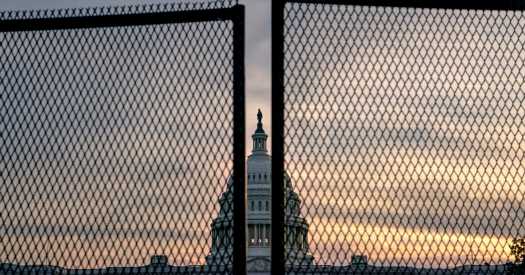Six months after a pro-Trump mob stormed the Capitol in a deadly riot, the security fence constructed to fortify the complex in its aftermath is coming down.
William J. Walker, the House Sergeant at Arms, told members of Congress on Wednesday that the Capitol Police Board had endorsed police leaders’ recommendation to remove the fence, which became a potent symbol of the violence of the Jan. 6 assault, and workers would begin doing so as early as Friday.
In an email, Mr. Walker said the step was possible because of improved security conditions on Capitol Hill, which were the result of “enhanced coordination” between the Capitol Police, District of Columbia authorities and “neighboring state and federal law enforcement partners.”
The process is expected to take no more than three days, Mr. Walker wrote. It will do away with a structure that became a physical manifestation of the consequences of the Capitol riot, which sowed chaos and fear in Washington, a city that prides itself on providing open access to the buildings that house the country’s democratic institutions.
In the immediate wake of the attack, Capitol Hill resembled a war zone, with a wide perimeter of razor wire-topped fencing patrolled by National Guard troops dressed in camouflage fatigues.
In the weeks afterward, lawmakers in both parties began agitating to scale back the security measures, complaining about the financial costs, the lack of public access to the building and the optics of closing off the Capitol. The National Guard left the complex in May.
The House approved a $1.9 billion emergency security spending bill in May that included $520 million to reimburse the National Guard, but that legislation has stalled in the Senate.
Mr. Walker said Capitol Police would continue to monitor threats and added that the Architect of the Capitol, the agency in charge of maintaining the structure, would “expeditiously reinstall the temporary fencing should conditions warrant.”
Other building restrictions, such as bans on tours for members of the public, will remain in place, Mr. Walker said.
Source: Read Full Article
